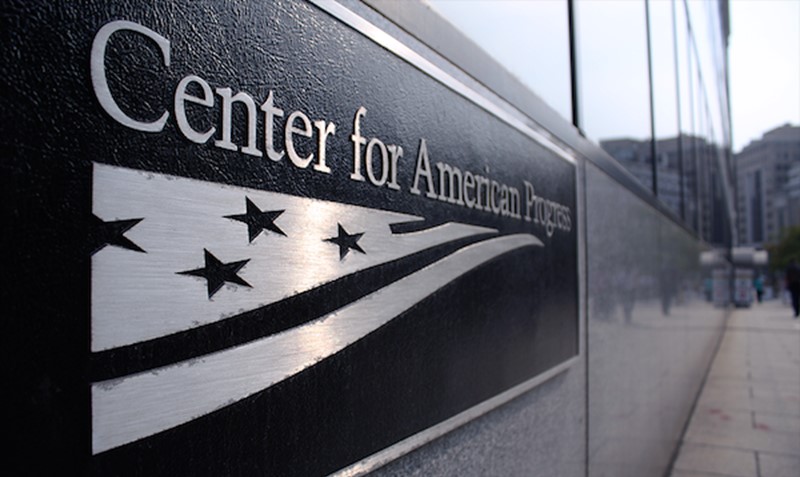
Washington, D.C. — Yesterday, Gov. Ned Lamont’s (D-CT) signed Connecticut’s clean slate bill into law. With the governor’s signature, Connecticut becomes the fifth state to enact clean slate automated record-clearing legislation. It joins Michigan as the second state to automatically clear qualifying felonies as well as misdemeanors, removing barriers to employment, housing, and education for the 1 in 3 Connecticut residents with a criminal record. Following the signing, Rebecca Vallas, senior fellow at the Center for American Progress and one of the co-originators of the clean slate policy model, released the following statement:
I am thrilled that hundreds of thousands of Connecticut residents will now be freed from the never-ending stigma and economic marginalization that come with a criminal record. In the digital era, with 9 in 10 employers, 4 in 5 landlords, and 3 in 5 colleges and universities now using background checks to screen applicants, a criminal record can be a life sentence to poverty. By removing government-created barriers to work for Connecticut residents with records, clean slate will not only put economic opportunity within reach for huge numbers of residents with records but also help the state achieve a stronger and more equitable recovery from the COVID-19 crisis.
I offer a hearty congratulations to Gov. Lamont, state Sen. Gary Winfield (D-CT), who sponsored and championed the legislation, and the Connecticut Legislature. The bill’s passage is a testament to years of tireless work by a remarkable coalition led by CONECT, in partnership with the American Civil Liberties Union of Connecticut. With the passage of this legislation, Connecticut is not only building itself a stronger and more inclusive economy but also serving as model for other states that are looking to do the same.
With Gov. Lamont’s signature, Connecticut joins a growing number of states that have embraced automated record-clearing laws as the clean slate model continues to gain traction in red, blue, and purple states alike. Pennsylvania became the first state to automate criminal record-clearing with the 2018 bipartisan Clean Slate Act. In the first year since the law took effect in June 2019, Pennsylvania sealed more than 35 million cases, helping more than 1 million Pennsylvanians move on with their lives. Utah became the second state to enact a clean slate automated record clearance law in March 2019, and Michigan followed suit in October 2020 with what is now the most expansive automated record clearance law in the United States. New Jersey enacted a task force to shape an automated record clearance program for the state, and California has adopted a prospective-only automated record clearance program. States as diverse as Washington state, North Carolina, Louisiana, Delaware, and New York state have introduced or passed measures that move toward automated record-clearing, with momentum currently building in many more for state 2021 legislative sessions—including in Oregon and Texas—where clean slate campaigns launched earlier this year. Bipartisan, bicameral legislation to create a federal record-clearing remedy and to automatically clear certain federal records was introduced in the U.S. House of Representatives and in the U.S. Senate in April 2021.
Related resources:
- “A Criminal Record Shouldn’t Be a Life Sentence to Poverty” by Rebecca Vallas, Sharon Dietrich, and Beth Avery
- “Advancing Clean Slate: The Need for Automatic Record Clearance During the Coronavirus Pandemic” by Akua Amaning
- “Update to ‘News You Can Use: Research Roundup for Re-Entry Advocates’” by the CAP Poverty Team, Kenny Lo, and Akua Amaning
- “PA Clean Slate: Delivering on Its Promises” by Sharon M. Dietrich, Community Legal Services of Philadelphia
- “Criminal records can be a ‘life sentence to poverty.’ This state is automatically sealing some.” by Hannah Knowles, The Washington Post
- “Why states are rushing to seal tens of millions of old criminal records,” The Economist
- “Video: Clean Slate – Jarrett’s Story (Michigan)” by Jasmine Hardy, David Ballard, and Rebecca Vallas
- “The Case for Expunging Criminal Records” by J.J. Prescott and Sonja B. Starr, The New York Times
- “One Strike and You’re Out: How We Can Eliminate Barriers to Economic Security and Mobility for People with Criminal Records” by Rebecca Vallas and Sharon Dietrich
- “Removing Barriers to Opportunity for Parents With Criminal Records and Their Children: A Two-Generation Approach” by Rebecca Vallas, Melissa Boteach, Rachel West, and Jackie Odum
- “Video: ‘I Can Celebrate and Say I’m Free’: How Connecticut’s Clean Slate Act Can Give People a Second Chance” by Jasmine Hardy, David Ballard, and Rebecca Vallas
Learn more about automated record clearance at CleanSlateInitiative.org


